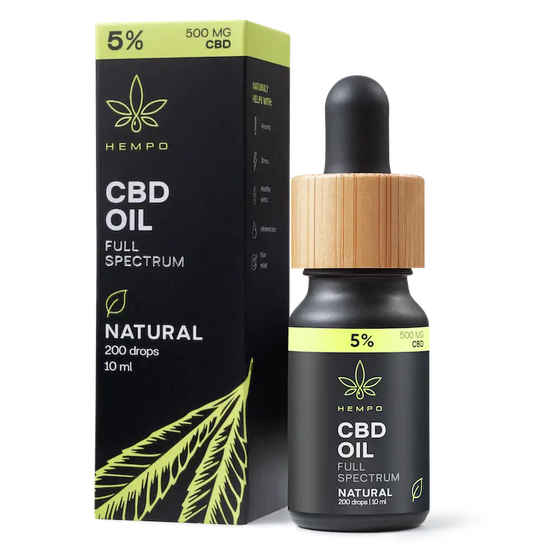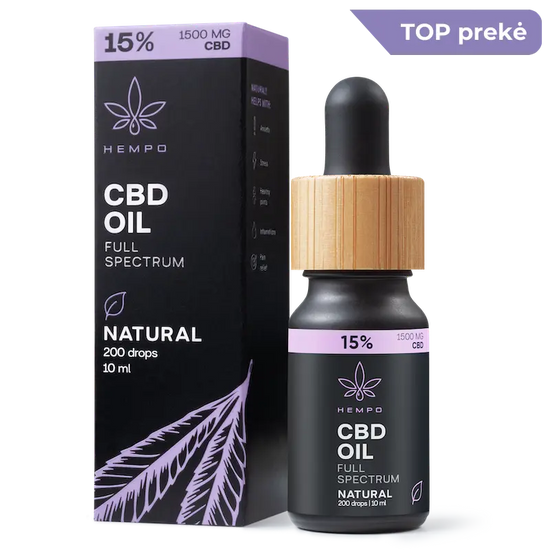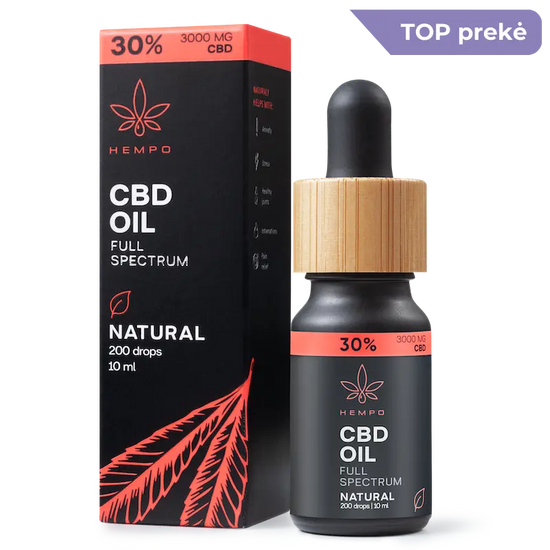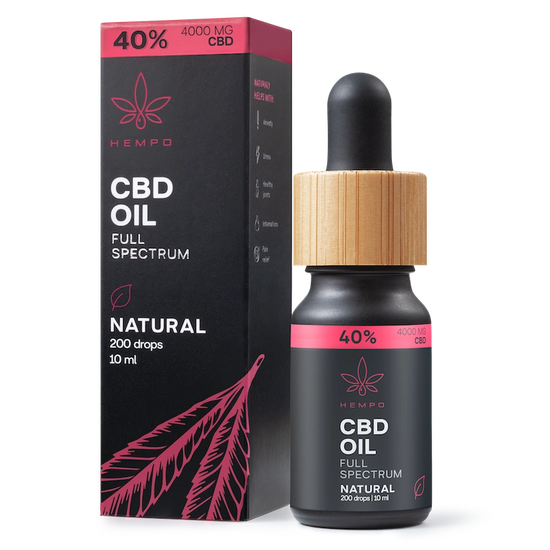CBD in cancer management: CBD benefits
CBD may improve the quality of life for people with cancer. Studies suggest that CBD can help manage some cancer symptoms, reduce the side effects of chemotherapy, and strengthen patients' immunity. It is important to consult with a doctor before using CBD as an additional measure in the fight against cancer.
Today, doctors and pharmacists approach CBD as a promising anti-cancer component that can significantly improve the quality of life for people suffering from oncological diseases. Let's take a closer look at the medicinal and therapeutic properties and benefits of CBD for patients.
Table of Contents
Note: This and other articles on Hempo's blog are for informational purposes only. According to the directive of the European Commission, cannabidiol is classified as a 'novel food', therefore CBD products should not be used as a food supplement in Lithuania.
CBD for cancer: what is it?
Hemp plants consist of hundred compounds called cannabinoids. CBD (cannabidiol) extracted from hemp is the second most popular cannabinoid in the world, second only to tetrahydrocannabinol (THC), a cannabinoid with hallucinogenic properties.
Unlike THC, cannabidiol does not cause intoxication or other adverse reactions. CBD has calming effects and anti-inflammatory properties, so it's used very widely. CBD oil is used in cosmetics, e.g. to improve skin condition, treat acne, reduce wrinkles, strengthen thinning hair, etc., and for medical purposes, e.g. to treat anxiety disorders, insomnia, depression, eating disorders, chronic diseases and oncological diseases.

CBD and the endocannabinoid system
The health benefits of CBD have been known for decades. CBD research and product development was further fuelled by the discovery of the human endocannabinoid system (ECS) in the late 1980s.
The ECS is a complex cell signalling system consisting of cannabinoid receptors and endocannabinoids. The endocannabinoid system is found throughout the body, organs and tissues, but its activity is manifested in the central and peripheral nervous systems.
The endocannabinoid system helps regulate many vital physiological functions, such as sleep, mood (hormone balance), appetite, emotions and pain perception. CBD interacts with the human body through ECS receptors and the entire endocannabinoid system.
Oncology and CBD: what should you know?
Cancer is an aggressive and often difficult to treat disease that is caused by hereditary, environmental and lifestyle factors. With cancer and other oncological diseases, the treatment process is often long and complicated. Even patients receiving the best medical care still experience many unwanted, distressing side symptoms.
However, progress in the treatment of oncological diseases is made every day: new treatments are constantly being developed and improved in Lithuania and around the world. CBD is no exception. The use of this cannabinoid in the treatment of cancer has been of interest to the medical and scientific community for some time. CBD products have already shown that they can help cancer patients manage some of the symptoms, alleviate the side effects of treatment and strengthen their weakened immune systems .
Also, researchers from different disciplines are currently investigating whether CBD oil could slow down or completely stop cancer. Although there is still a lot of work to be done in this area, research shows great promise for CBD.

Is CBD for Cancer Safe?
Does CBD for Cancer Have Side Effects?
Benefits of CBD for patients
Here are the benefits that regular use of high-quality CBD oil can provide:
1. Stimulating appetite. Doctors point out that many cancer patients complain of loss of appetite or even eating disorders. They suffer from changes in taste, nausea or vomiting, making it difficult to enjoy food. CBD oil can reduce nausea and vomiting while stimulating appetite. Many patients who regularly use CBD products begin to enjoy the food much more, gain some weight and feel better overall;
2. Relieving pain. CBD works as an anti-inflammatory and pain reliever. It could benefit to people with oncological diseases, who often suffer from pain in various body parts, numb legs and other unpleasant physical sensations caused by the disease and the treatment;
3. Improving emotional well-being. The scientific publication The Permanente Journal wrote about a study involving 72 patients. It found that as much as 79% of patients who regularly used CBD for a month experienced improving symptoms of anxiety. 66% of patients reported that their sleep quality and overall emotional well-being had improved. These results are associated with the positive effects of CBD on the receptors of the endocannabinoid system;
4. Slowing the growth of tumors. Studies show that CBD oil can slow the growth of certain tumors. It is associated with the apotheosis-promoting effects of CBD. Apotheosis is a genetically programmed cell death. Apotheosis occurs when a cell becomes useless or dangerous to the body. In cancer, the processes of apotheosis slow down, but CBD can stimulate the self-destruction of cancer cells. In this way, the growth of tumors is significantly slower.
Cannabinoid and Cancer Research

CBD for cancer: prospects of the medication
For example, the potential of CBD in breast cancer treatment has been studied for years. Tests in mice have shown consistent effectiveness of cannabidiol on many different breast cancer cells. It's important because breast cancer is one of the most common forms of cancer. It's also a fairly common cause of death in women. However, the therapeutic effects of CBD are likely to be applied to many other types of cancer, including brain tumors, pancreatic, prostate, colorectal, lymphoma, etc.
And this is not the only potential anti-cancer effect of CBD. It is claimed that CBD oil not only affects cancer cells directly, but also interacts with the environment of a tumor or other cancerous formation: it stops the development of blood cells that feed the cancer, prevents them from spreading and reduces inflammatory processes in the affected organs and the whole body.
Moreover, despite its activity against cancer cells, CBD oil has no negative effects on normal cells in tissues and organs affected by cancer. It means that patients would probably not experience severe side effects when using CBD-based medications.
Although research on CBD as a medicine is currently at a very early stage, one thing is clear - CBD's mild but sure effects make it a promising anti-cancer agent.





